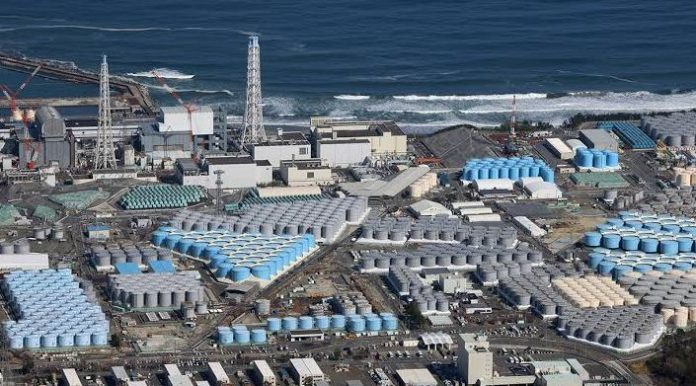By Joseph Veramu
In the Pacific, Japan prides itself as a pacifist state. Their diplomats are known for being polite, respectfully bowing to dignitaries and emphasizing that they have the interest of the Pacific in their peaceful hearts. Now Pacific islanders are distressed and hoping Japan does not have the heart of aggression.
The Japanese government has been firm in its stance that the planned discharge of treated radioactive wastewater from Fukushima into the Pacific Ocean in 2023 is safe despite strong opposition from Pacific leaders.
Pacific islanders hope that Japan will look at the harmful effects of radioactive dumping that has a very high possibility of negatively affecting current and future generations of Pacific islanders.
Even local Japanese fishermen have strongly objected to the discharge of radioactive water. Toshiko Tanaka, a survivor of the atomic bombing in Hiroshima, pleaded, “We share one water on the earth and what leaks from Japan will leak everywhere. I think it’s very bad and it’s got to stop. All the wastewater has to be kept on land and not be released into the ocean.”
It is noted that the Pacific Ocean is the largest mass of water on Earth, having the greatest biomass of organisms of ecological, economic, and cultural value. It has 70 percent of the world’s fisheries. The health of the ocean ecosystems is failing due to climate change, over-exploitation of resources, and pollution. The discharge of radioactive wastewater by TEPCO will worsen the situation.
The Pacific Islands Forum (PIF), comprising 18 members, set up a panel of global experts on nuclear issues. Their research was to support Pacific nations in their deliberations on the matter.
“We’re unanimous in saying we don’t see enough information to support dumping the radioactively contaminated water into the ocean,” The panel noted. “Our first recommendation is to take that option (of dumping nuclear wastewater) off the table.”
There are huge concerns that the movement of ocean currents will enable pelagic fishes to accumulate radionuclides in their systems and widely distribute them over the vast Pacific ocean.
What should be understood is that fish consuming radioactive materials from Japan travel very widely. Unlike people who show their passports and visa before entering a country, fish do not stop to get visas before entering the waters of Pacific nations.
If the research that TEPCO is using to argue that the radioactive wastewater is safe to dump in the Pacific is found later to be wrong, then there is the real possibility of the genocide of Pacific peoples who rely on the ocean for their food needs. Consuming contaminated marine foods can affect the next generation of Pacific islanders.
PIF Secretary General Henry Puna emphasized, “Our ultimate goal is to safeguard the Blue Pacific—our ocean, our environment and our peoples—from any further nuclear contamination. This is the legacy we must leave for our children.”
Henry Puna was invited to Japan to discuss the release of the treated wastewater from the Fukushima nuclear power plant into the Pacific Ocean. There is deep concern that Japan, which facilitates the Pacific Islands Leaders Meeting (PALM) every three years, may use checkbook diplomacy to entice Pacific leaders to agree to the dumping by promising them more money.
The president of the Federated States of Micronesia, for example, is quoted later as saying, “our country is no longer fearful or concerned about this issue (wastewater dumping)”.
The PIF panel of experts, who have been trying to independently verify the safety of the operation, say they have not been sent data that proves it is safe. Alarm bells were raised over discrepancies in the data provided. The panel noted “We immediately noticed problems with the data that the panel has considered to be serious red flags. The panel has found that some of TEPCO’s sample extraction has been inadequate, incomplete and at times inconsistent and even biased.”
Some good news for the Pacific is that Japan has agreed to delay the discharge of treated nuclear wastewater into the Pacific Ocean until PIF science experts verify if it is safe to do so.
The incoming PIF Chair and the Cook Islands Prime Minister Mark Brown traveled to Japan as part of the PIF delegation in an effort to convey their deep concerns. He requested a deferral of Japan’s plans to dump wastewater into the ocean.
It has been suggested that Japan needs to reform its foreign policy in the Pacific. At the 9th PALM held on July 2, 2021, leaders of the PIF emphasized the importance of “ensuring international consultation, international law, and independent and verifiable scientific assessments with regards to Japan’s announcement (of dumping radioactive wastewater).”
Japan cannot unilaterally dump radioactive materials. As it is a very powerful Asian country, it has a moral responsibility to respect and protect small Pacific island nations that are already suffering from the negative effects of climate change. These nations rely on the ocean for almost all their food sources and national incomes to support their economic development.
It should also be obvious that the dumping will also affect the entire world which sources marine foods from the Pacific Ocean.
We hope that common sense will prevail in the end and that the right action will be taken that will ensure harmony in the environment of the Pacific.
Joseph Veramu is the dean of the South Pacific Island Countries Institute of Asian Studies.

















